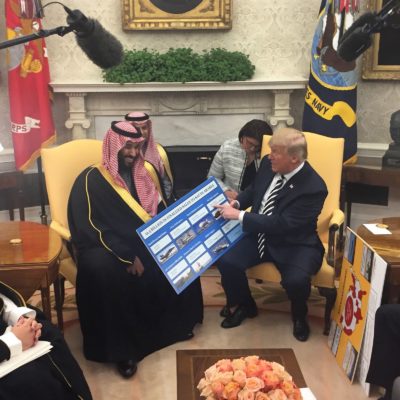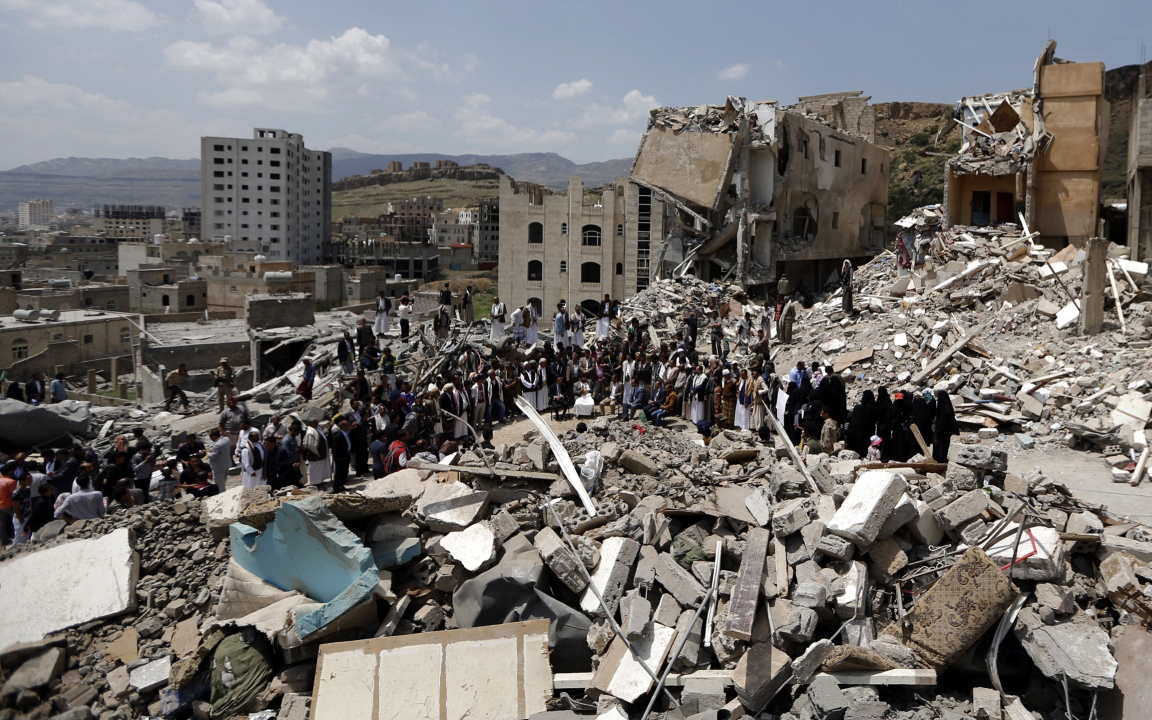21 March 2018 – On 20 March 2018, the United States (US) Senate voted narrowly to kill a bipartisan resolution S.J.Res.54 that would withdraw American support for Saudi Arabia’s military intervention in Yemen, with 55 in favor of the motion to table the bill and 44 against. The bill, sponsored by Sens. Bernie Sanders (I-VT), Mike Lee (R-UT), and Chris Murphy (D-CT), sought to reassert Congressional control over the use of American military force, which has largely been governed by two Authorizations to Use Military Force (AUMFs) passed in 2001 and 2002. Americans for Democracy & Human Rights in Bahrain (ADHRB) is extraordinarily disappointed by today’s decision which all but assures that the war will continue with full American support, but welcomes the growing bipartisan effort to restrict US assistance for the Saudi-led military coalition in Yemen demonstrated by the unprecedentedly close vote. We call on Congress to continue pushing for an end to US participation in the war and to press the Trump Administration to further limit American involvement, including by renewing conditions on pending arms sales to Saudi Arabia and members of its coalition, like Bahrain and the United Arab Emirates.

The vote came on the same day as US President Donald Trump hosted Saudi Arabia’s Crown Prince Mohammed bin Salman in a White House meeting. Bin Salman is not only the Crown Prince, but also the kingdom’s Minister of Defense and its architect of the intervention in Yemen. Bin Salman is currently in the US for a three-week trip in which he is expected to work toward an even closer defense relationship with the Trump administration, including potential purchases of nuclear technology. Though President Trump has previously called on the Saudi government to end its blockade of Yemen, today he instead focused squarely on US arms deals – brandishing a large poster promoting “12.5 BILLION IN FINALIZED SALES TO SAUDI ARABIA” and emblazoned with images of American made weaponry. Another poster suggested that “Over 40,000 jobs in key states” would be generated by the arms deals, despite growing reports casting doubt on the president’s claims.
In the absence of Congressional pushback, further arms sales would extend US complicity in the humanitarian crisis generated by the Yemen war. Since the Saudi-led coalition entered the conflict in 2015, thousands of civilians have been killed or injured, including more than 5,000 children. Coalition airstrikes have consistently struck civilian targets, including schools and hospitals, and both the coalition’s blockade and Houthi rebel interdiction has prevented food and medicine from reaching those in need. As a result, there is a suspected outbreak of diphtheria, over 700,000 Yemenis have been affected by an outbreak of cholera, and over 20 million Yemenis are in need of humanitarian assistance. According to Human Rights Watch, the indiscriminate nature of the coalition blockade may amount to war crimes because of its widespread effect on civilians, in addition to illegal airstrikes.
Despite potential allegations of war crimes committed by the Saudi-led coalition, and pressure from numerous human rights organizations, the US has continued to support Saudi operations. The US provides the Saudi-led coalition with significant military support, from refueling to arms deals, and even helped weaken the recent UN resolution on Yemen. Just ahead of today’s vote, Secretary of Defense James Mattis sent a letter to Congress that remarkably framed the Saudi intervention as “legitimate self-defense” and, without evidence, asserted that the withdrawal of US military support would increase civilian casualties and “embolden Iran,” which nominally backs the Houthi movement in Yemen. The secretary’s remarks are at odds, however with Congressional testimony from CENTCOM Commander General Joseph Votel made just a day earlier, in which he admitted that the US does not currently monitor the outcome of Saudi airstrikes launched from aircraft refueled by American forces or using American munitions. Further, more than “embolden[ing] Iran,” there is mounting evidence that the war is actually inadvertently empowering the US military’s primary enemies in the region: Al-Qaeda in the Arabian Peninsula and the Islamic State.
Yet public awareness of the conflict has consistently grown in the US and helped lead to Congressional scrutiny. Since late September 2016 when the US Senate voted 71 to 27 to kill legislation that would have stopped a $1.15 billion sale of tanks to Saudi Arabia over concerns of human rights abuses, there has been a growing movement in Congress urging greater accountability for the US role in Yemen. In early July 2017, the Senate only narrowly approved the sale of precision-guided missiles to Saudi Arabia with a vote of 53 to 47. Then, on 13 November 2017, the House of Representative passed a symbolic resolution holding that American military support to the Saudi-led coalition is not approved by Congress under the existing AUMFs. Today’s close vote to table a bill that would not just cut arms transfers but would outright withdraw support for the Saudi-led coalition demonstrates a continued groundswell of opposition to US involvement in the Yemeni war.
“As the Senate debated the risk of US complicity in Saudi Arabia’s war crimes in Yemen, President Trump presented the kingdom’s crown prince with a literal menu of American-made weapons for use in the conflict,” said Husain Abdulla, ADHRB’s Executive Director. “There is no proof that further military support for this disaster will create jobs or make America safer, only clear evidence that it will drive the US deeper into a quagmire that’s killing civilians and enabling violent extremists. The Secretary of Defense says withdrawing US assistance would increase the carnage, but it’s difficult to imagine how it could get much worse than the brink of man-made famine, stamped with ‘Made-in-America.’ Congress needs to keep pushing to end this war immediately.”
ADHRB condemns the US government’s continued backing for the Saudi-led coalition and its military operations in Yemen, but is heartened by the growing Congressional movement to restrict American military assistance to Saudi Arabia. We call on the US to work seriously and constructively with other global actors to bring an end to the crisis in Yemen by actively supporting the UN-led accountability process, and to use its substantial political and material leverage to press Saudi Arabia to resolve the war and ameliorate the humanitarian catastrophe.





